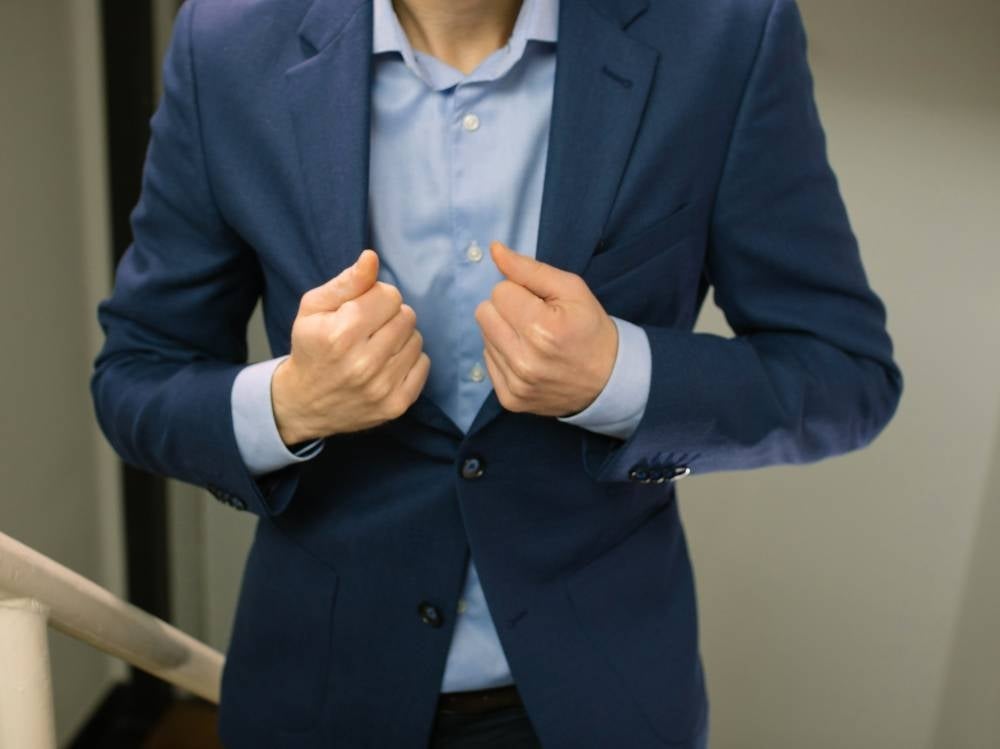Untying our ties to colonial clothing
Isn’t it time we stop feeling the need to dress like our colonial masters?

Anyone who’s ever seen me in person knows that I’m probably the last person qualified to make any kind of comment about male fashion.
My idea of an exciting wardrobe is my collection of Moo Cow and Star Trek t-shirts.
Nevertheless, I can’t resist a few comments on the topic, as relates to our new tie-free cabinet, and a recent article on Deputy Minister of Youth and Sports Adam Adli’s choice of clothes.
These comments are based on two very simple principles I feel are valuable to uphold when it comes to thinking about ‘professional’ fashion, especially within an official, governmental context. They relate mostly to menswear, as I am even less qualified to comment on womenswear, but can sometimes be applied across the board.
First, we should put a higher premium on our own roots and culture than on the culture of the rest of the world.
Second, I tend to prefer function over form.
The classic ‘professional’ or ‘official’ attire for men is a suit and tie.
This has been so for aeons in Malaysia, and for even longer in the west. If the design was patented, the inventor would be immensely rich, having achieved a level of monopoly that is virtually unheard of.
To adapt an old phrase, wherever on the globe the sun is shining at any given time, some poor sod is wearing a suit and a tie. It wouldn’t surprise me if this were true even in the middle of the ocean somewhere.
A suit and tie is obviously western wear. To be perfectly honest, on an aesthetic level, I like both suits and ties.
On a functional and cultural level though, it is hard to describe my disdain for them.
A good critical thinker asks at every moment of the day: Why do we do X, Y, or Z?
So, why would a Malaysian in Malaysia wear a tie?
To answer this question, we need to first ask: what is the function of a tie anyway?
A tie keeps your neck warm. It prevents cold air from entering your shirt, and making you cold. This makes sense in countries with cold weather, where this practice originates from.
It is mind bogglingly irrelevant in our beloved tropical Malaysia.
Current year-end abnormally cold weather notwithstanding, there are simply no circumstances in which I - living and working in my dear homeland - need a long piece of cloth squeezed around my neck in order to keep the cold air out.
This being the case, why on earth would I wear one?
It would be different if wearing a tie was some sort of local or traditional cultural heritage.
It obviously is not. Malays, Chinese, Indians, Ibans, Kadazan - none were silly enough to go around hanging non-functional strips of fabric around their necks for no reason.
The simple truth is, we adopted this habit from our colonial masters - monkeying what they deemed ‘formal’ and ‘official’ wear. Every movie I’ve seen involving British colonials in the tropics seems to feature some Englishman stupidly making himself sweat buckets by insisting on dressing in the tropics as he would back in England.
This brings us to part two: the jacket or ‘blazer’ (I have always wondered why they call it that. It doesn’t blaze anything) component of a suit.
Here’s another mind boggler. Is anyone aware of how hot it is outside? What possible reason could we have for making ourselves even hotter by wearing a ridiculously thick extra jacket?
That said, if you’ve been in office buildings in Malaysia, you’d be well aware that sometimes, the airconditioning is so unbelievably cold, that jackets make perfect sense.
They make perfect sense that is, until someone stops to ask: Why is the airconditioning so cold?
I’m not saying we need to ban airconditioning. But do we really need it to be blasting at 16 degrees celsius all day every day? Wouldn’t say 22 or 23 degrees keep us perfectly comfortable, while not requiring a jacket?
(I put the airconditioning in my car at 25 degrees, and honestly find it a little too cold any lower than that most of the time).
I mean, are we wearing jackets because we’re blasting the airconditioning? Or are we blasting the airconditioning because we’re forced to wear jackets?
Whichever it is, isn’t it time we revisit this double redundancy?
Let’s also not forget that it really isn’t comfortable to have your neck squeezed the whole day. Perhaps being able to breathe better would improve the productivity of many.
For my money, a dress shirt and slacks, or whatever the traditional attire equivalent is, should be plenty sufficient for the vast majority of governmental business. I think it’d look great if most government servants wore a baju Melayu to work every day.
This can translate to less airconditioning, less power consumption, and less money and resources spent on jackets (which can be redirected to more traditional wear) - all of which have a positive impact on the environment.
Just as importantly, it sends a strong signal that we are proud of our local and traditional cultures, and need not obsessively ape and dress like our former colonial masters. It’s almost 2023!
It is possible that some workers like how a suit and tie distinguishes them and signals some sort of higher rank, or more important job.
I suppose it’s not necessary to impose a more ‘communist’ approach of forcing everyone to dress down more.
The policy I would go for for most workers is one where you can wear a suit and/or tie if you really want to, but you most certainly are not in any way, shape, or form obliged to.
Malaysia is devastatingly beautiful in its diversity. We are home to a multitude of cultures, most of which have mixed, matched, and merged in all sorts of gorgeous ways (think of our food!).
Isn’t it time we adopt fashion practices that are not only comfortable, environmentally friendly, and comfortable, but which also reflect this diversity and beauty?
NATHANIEL TAN is a freelance strategic communications consultant who also works with Projek #BangsaMalaysia. Twitter: @NatAsasi, Email: nat@engage.my.
The views expressed in this article are the author's own and do not necessarily reflect those of Sinar Daily.
Download Sinar Daily application.Click Here!















